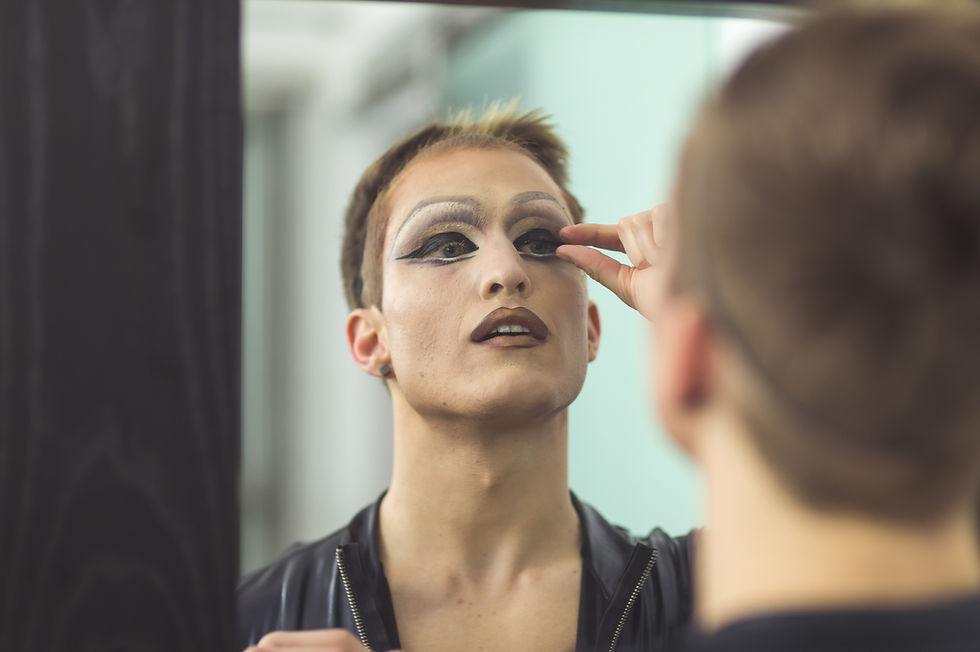Language & Identity
- Loren Bahor, MSW, LCSWA

- Jul 1, 2021
- 2 min read

Pride month is just wrapping up, and I have been thinking a lot about how words and language shape identity, particularly when we think of LGBTQIA+ identity. Language plays a major role in forming our perceptions of ourselves and other people – it also speaks volumes about the values that we share as a culture and society. Thoughtful and intentional use of words relating to sexuality and gender can have a significant impact on one’s ability to feel safe and accepted, supported and included in a community.
The words we use shape the thoughts and beliefs we have about ourselves and the world around us. Words reflect our experiences and unmask the facets of our very identity. Being intentional about our language in regards to gender is a powerful way to show support and promote gender equality and uproot gender bias.

“There is no greater agony thn bearing an untold story inside you.” -Maya Angelou
I have loved this quote since I came across it when I was in college (also, my cat’s name Angelou – but I digress). What I love most about it is that it gets to the heart of the power of words and of language, of expressing one’s own truth and allowing oneself to be exposed and vulnerable.
One of the ways that we express our identity is through the use of pronouns (she/he/them/ze/zir/hir), which is an incredibly personal thing. Aside from our names, this is the main way that other people refer to us. People who have never given a second thought to their gender identity probably take their name and the pronouns they use for granted, but for transgender, gender fluid, gender queer, and nonbinary people, the name that they choose and the pronouns that they go by is an important part of their transition – it affirms their gender identity.

By using a person’s correct pronouns, we are validating and respecting not only their identity but also the diversity of all gender identities. It’s also important to be mindful not to assume a person’s pronouns based on their appearance as this can encourage stereotypes relating to gender expression.
Gender-neutral language of course isn’t exclusive to pronouns. It’s important to pay attention to the ways in which we use gendered language in everyday conversation (police officer instead of police man, server instead of waiter/waitress et.). According to 2019 study at Washington University in St. Louis and UCLA, researchers found that using gender-inclusive language “influences attitudes and beliefs about gender equality and tolerance toward LGBT individuals by decreasing the cognitive salience of males (and increasing the salience of nonmales).”
By recognizing the power language has to shape not just our lived experiences and the lived experiences of those around us but the very culture in which we all exist and participate, we can use language to create a community, country, and world that is more valuing of all and reflects the dignity of all, as well.





Comments